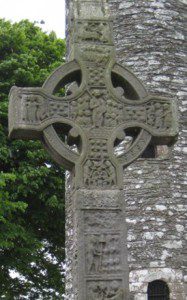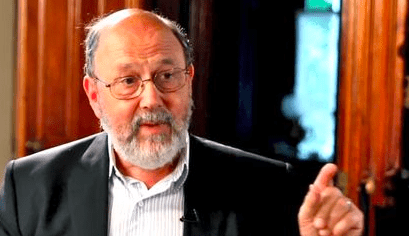 What about you? Do you believe in a (literal) millennium? That is, do you think Christ will establish a 1000 year rule on earth, through Jerusalem, before which there will be a great battle and after which there will be the final great battle, the resurrection and eternity? Or do you see the millennium more in metaphorical terms?
What about you? Do you believe in a (literal) millennium? That is, do you think Christ will establish a 1000 year rule on earth, through Jerusalem, before which there will be a great battle and after which there will be the final great battle, the resurrection and eternity? Or do you see the millennium more in metaphorical terms?
Some of us grew among the branches of Christianity where firm views on such questions were not only given as answers but any questionings led to suspicion of one’s orthodoxy. Others find this whole millennium thing weird and backward.
It’s all based on one text, Revelation 20:1-10, and I have the whole text after the jump. Tony Thiselton, in his new book, Life after Death, argues that there is a “new approach” to this entire debate. He makes two major points and then offers his view:
First, he shows that some in the early church did believe in what is more or less a “literal” millennium (Justin, Irenaeus, Tertullian, Lanctantius) while others see it as metaphor for the church age (Origen, Tyconius, Augustine, Luther). In other words, there is no consensus in the church on this one.
Second, more lack of clarity. Judaism is unclear here and, to top this off, there are conservative evangelicals (he cites Hendrikson, Mounce) who don’t think Rev 20 is teaching a “literal” millennium. In other words, the millennium should not be held as a clear teaching of the Bible.
But Thiselton proposes another way of examining this: he suggests seeing the difference (as he did with immediate vs. intermediate state) between participants and observers. He contends then that millennium imagery in Rev 20 is language designed to console and encourage the faith of the persecuted and not an objective map of what will happen. (This is, as I read Thiselton, both unprovable and a way of affirming the metaphorical views of Augustine and Luther.) He argues that prophecy is “primarily” language for participants and not a future map. (The word “primarily” does not solve any problem for if it isn’t a map then it isn’t a question of “primarily” but an “either/or.”)
1 And I saw an angel coming down out of heaven, having the key to the Abyss and holding in his hand a great chain. 2 He seized the dragon, that ancient serpent, who is the devil, or Satan, and bound him for a thousand years. 3 He threw him into the Abyss, and locked and sealed it over him, to keep him from deceiving the nations anymore until the thousand years were ended. After that, he must be set free for a short time.
4 I saw thrones on which were seated those who had been given authority to judge. And I saw the souls of those who had been beheaded because of their testimony about Jesus and because of the word of God. They had not worshiped the beast or its image and had not received its mark on their foreheads or their hands. They came to life and reigned with Christ a thousand years. 5 (The rest of the dead did not come to life until the thousand years were ended.) This is the first resurrection. 6 Blessed and holy are those who share in the first resurrection. The second death has no power over them, but they will be priests of God and of Christ and will reign with him for a thousand years.
7 When the thousand years are over, Satan will be released from his prison 8 and will go out to deceive the nations in the four corners of the earth—Gog and Magog—and to gather them for battle. In number they are like the sand on the seashore. 9 They marched across the breadth of the earth and surrounded the camp of God’s people, the city he loves. But fire came down from heaven and devoured them. 10 And the devil, who deceived them, was thrown into the lake of burning sulfur, where the beast and the false prophet had been thrown. They will be tormented day and night for ever and ever.











